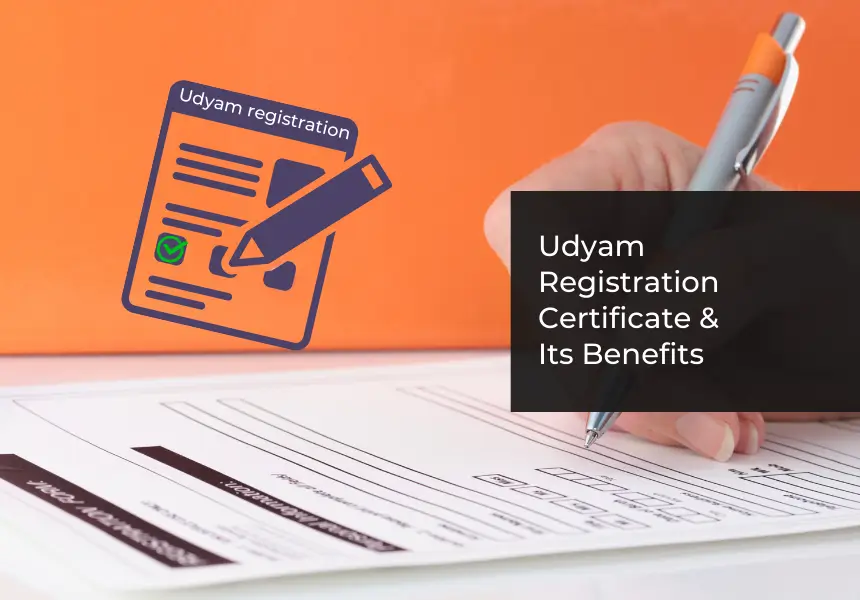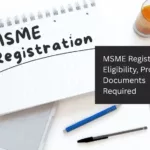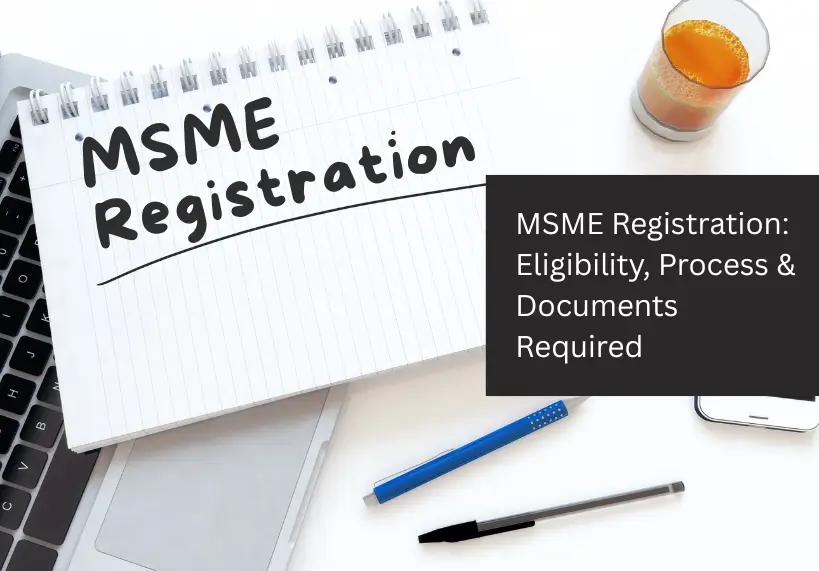
MSMEs contribute nearly 30% to India’s economy and help advance the country, generating millions of jobs annually. The Indian Government has taken several measures to support and promote them. MSME Udyam Registration is one such measure that formally establishes the business’s status. Registering your business is beneficial and necessary for legal and tax-related purposes.
Let’s understand what MSME Udyam Registration is in more detail.
What is Udyam Registration for MSMEs?
MSMEs, or Micro-Small and Medium Enterprises, are small businesses registered under the Ministry of Micro, Small and Medium Enterprises. They are classified into two categories: Manufacturing enterprises and Services enterprises.
The Indian government released Udyam Registration, a mandatory certification from the Ministry of Micro, Small and Medium Enterprises, to support and promote these enterprises. This certificate helps establish MSMEs and makes them a part of the Indian economy. Udyam registeration can also help MSMEs receive loans etc.
Key Features of Udyam Registration
Udyam Registration has several features, some of which are mentioned below:
- Open to all: Anyone can register their business through the official Udyam portal.
- Digital and hassle-free: The registration process is online, with minimum paperwork and document uploads. No fee is charged upon registration.
- Instant e-certificate: After successful registration, you will receive a digital Udyam Registration Certificate with a QR code for easy access to your business details.
- Smooth integration: The Udyam system is connected to the income tax and GSTIN systems, which allows it to access investment and turnover data automatically.
- Exporting: International companies benefit from the removal of exporting data from sales figures.
- Priority loan access: Businesses registered with Udyam Registration are qualified for priority sector lending from banks, making it easier to secure loans.
Benefits of Udyam Registration
Udyam Registration offers a range of advantages for your MSME, including:
- Financial Support: You can get easier access to MSME loans from banks and financial institutions, often with lower interest rates and without the need for collateral.
- Easy Regulatory Process: There is a streamlined process for obtaining the licenses, permits, registrations, and approvals you need for operating.
- Intellectual Property Savings: Significant discounts on trademark and patent registration fees to protect your brand and inventions.
- Quality Recognition: Your dedication to maintaining quality standards can be seen by your reimbursement of ISO certification fees.
- Government Tenders: Exemption from government security deposits when bidding on government tenders makes getting contracts easier.
- Tax Benefits: Potential tax exemptions and concessions on water and electricity bills to reduce your business expenses.
- On-Time Payments: Protection against delayed customer payments, ensuring a smoother cash flow.
Eligibility for Udyam Registration
To be eligible for Udyam Registration, businesses must fall within the classification outlined by the Ministry of Micro, Small and Medium Enterprises. This is based on the business’ investment and turnover.
| Enterprise | Investment | Turnover |
| Micro | Up to Rs. 1 crore | Up to Rs. 5 crore |
| Small | Up to Rs. 10 crore | Up to Rs. 50 crore |
| Medium | Up to Rs. 20 crore | Up to Rs. 100 crore |
Udyam Registration is primarily for Micro, Small and Medium Enterprises (MSMEs) in manufacturing or service sectors. However, wholesalers and retailers can now apply for the benefits to get government support.
Documents Required for Udyam Registration
Since the Udyam Registration is mostly based on self-declaration, there is no need to provide proof during registration. You would only be required to provide basic details, which include
- Aadhaar number of the business’s owner
- Authorized signatory
- PAN number
- GSTIN number
- Address proof of the business – property tax receipts or utility bills
- Bank account details
Udyam Registration Certificate Process
The user-friendly government portal and its “single window” system have made the entire Udyam registration process easy. Below are the steps to register a new enterprise on the Udyam Registration portal:
- Visit the official Udyam registration website and select the “For new entrepreneurs not registered yet as MSME or those with EM-II” button.
- Enter the Aadhaar number and the enterprise owner’s name on the next page.
- Verify the Aadhaar number using the OTP received on the linked mobile number.
- Provide the required enterprise details, including the account number and IFSC code.
- Enter the NIC code and other necessary details related to the enterprise’s primary business activity.
- Verify the details and submit the application.
Upon successful submission, you will receive an e-certificate, including a 12-digit URN and a unique QR code. This certificate serves as permanent proof of Udyam registration, eliminating the need for renewal or re-registration.
Conclusion
Udyam Registration isn’t just about paperwork; it offers several benefits to small- and medium-sized businesses. The government is making registering easier than ever, giving you access to powerful tools to grow.
Imagine securing easier loans, participating in global trade, and gaining valuable recognition—all because of Udyam Registration. It can transform your operations and help you achieve new possibilities.
Frequently Asked Questions
What is the new MSME rule 2024?
A new rule is now in effect (April 1, 2024) that helps ensure faster payments. Larger companies must pay their bills to small businesses (MSMEs) within 45 days of receiving goods or services (or as agreed upon in writing). If they don’t, they won’t be able to deduct those expenses from their taxes, potentially leading to higher tax bills.
Is the Udyam registration certificate valid?
The Udyam registration certificate is valid for a lifetime, and there is no need to renew it.
What is the fee for Udyam?
Udyam registration is free of cost.
Who is eligible for MSME?
Proprietorships, partnership firms, companies, trusts, or societies with an investment below Rs. 50 crore and annual turnover less than Rs. 250 crore can apply for MSME registration.
What is the MSME 45 days rule?
A recent change in tax law (Section 43B(h) of the Income Tax Act) gives small businesses more leverage. Now, bigger companies that don’t pay their bills on time (within 45 days of a written agreement) may face higher taxes. This incentivizes them to settle their dues faster, improving small businesses’ cash flow.








